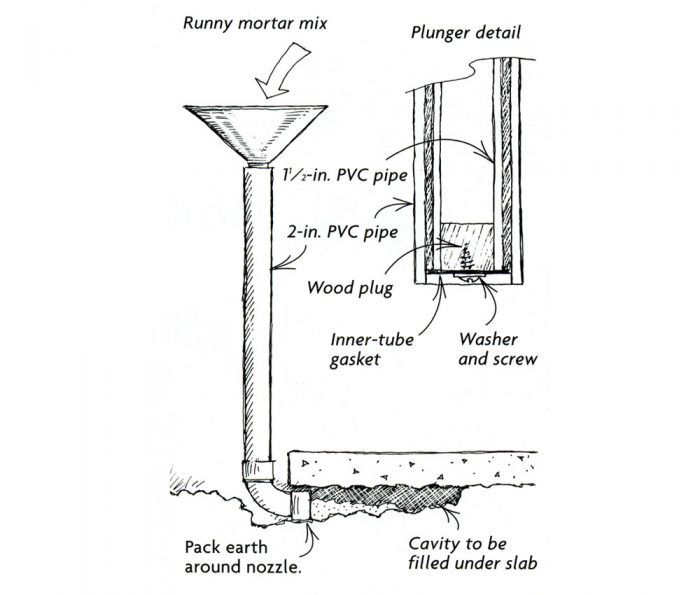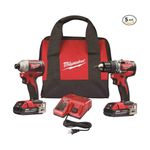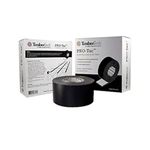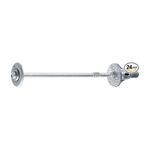
Some nasty runoff eroded a cavity under the edge of my concrete patio, and I became concerned about the lack of bearing along its edge. Sooner or later, the slab would break off where the soil had been washed away. To remedy the situation, I used the apparatus shown in the drawing to pack mortar into the cavity. The rig consists of a length of 2-in. PVC pipe with a 90° elbow glued to one end. The plunger is a length of 1-1/2 in. PVC pipe with a gasket made of an old inner tube on its end. The gasket is held fast by a screw and a washer driven into a wooden plug in the end of the plunger.
To use the rig, I put the elbow at the opening of the cavity and packed dirt around it to keep the mortar from escaping. Then I poured a runny mortar mix into the 2-in. pipe until it rose to the top. By using the plunger, I was able to push the remaining mortar into the cavity until it was full.
—David L.Johnson, Clinton, IA
Edited and illustrated by Charles Miller
From Fine Homebuilding #130
Fine Homebuilding Recommended Products

Drill Driver/Impact Driver

Flashing and Joist Tape

FastenMaster Screw Bolt Fastening System



























View Comments
GREAT idea. With several decades of experience with mortar, grout, and concrete, I'd suggest, if you've got more than a small amount to fill, you use a 45 deg L instead of the 90 shown in the tip. You'll have an easier time ramming the grout under the slab and avoid most, if not all, jambs in the tube. Thanks for the great tip!
I wonder if anyone has tried using self levelling compound for this kind of problem. I'm always impressed by the way it flows and how it finds its way into small openings.
What's an "inner-tube?"
Your young age may be showing here Bobbomax (or you're being sarcastic) - inner tubes used to be used inside of tires before the arrival of tubeless tires. Still common and available for some tire applications.
If only it were the ignorance of youth- that's curable. My local tire store says they do indeed stock inner tubes, but they're not the commodity they were in our youth. I suspect they're only common in bikes and wheelbarrows. And maybe old British cars with wire wheels.
These days I'd probably use some discs cut from gallon milk jugs.
My mind instantly went to EPDM roofing membrane since I have scrap lying around.